News + Media
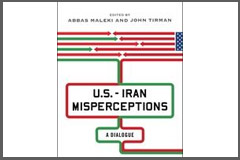 |
News@E40February 26, 2014US-Iran project book explores 'Misperceptions'The long-running US-Iran Project, which has brought together policy makers from both countries to explore fraught periods in the relationship, has produced a second book, U.S.-Iran Misperceptions: A Dialogue, published in February by Bloomsbury Press. John Tirman, CIS executive director, is coeditor and coauthor with Abbas Maleki, a former Robert Wilhelm Fellow at the Center and associate professor of energy policy at Sharif University of Technology in Tehran. Other contributors include Robert Jervis, Hossein Mousavian, Hussein Banai, Robert Reardon, Kayhan Barzegar, Steven Miller and Matthew Bunn. It is unique format in which Iranians and Americans write about each others role in the Gulf, on nuclear matters, and other issues. |
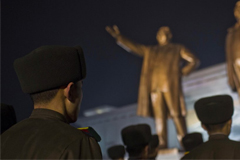 |
Analysis + OpinionFebruary 21, 2014Crimes against humanity: why we must never become numb to the phraseJim WalshWBUR: CognoscentiThis week has witnessed (what seems like) daily snowstorms, Ukraine teetering on the brink and that quadrennial spectacular known as the Olympics. But there were two other events worth noting. |
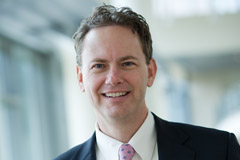 |
News@E40February 20, 2014Gavin begins work as Stanton chairThis year marks a major extension of MIT's engagement with nuclear studies with the appointment of Francis Gavin as the first Frank Stanton Chair in Nuclear Policy Studies, on the strength of a $5 million endowment from the Stanton Foundation. The Department of Political Science and its interdisciplinary Security Studies Program have been deeply engaged with these topics since the 1970s. "We're in a renaissance of nuclear studies now, and MIT is at the center of it—a majority of the scholars whose work I most admire have come from this program," says Gavin, who joins the Institute after 14 years at the University of Texas at Austin. Read more |
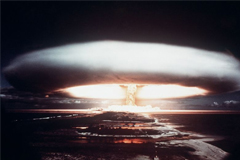 |
In the NewsJanuary 31, 2014Russian weapons removal & the cold war backpack bombThomas Neff and Adam RawnsleyWNYCWhen the Cold War ended, Russia was unsure what it should do with its thousands of weapons, from missiles to bombers. MIT Physicist, Dr. Thomas Neff, suggested that Moscow be allowed to sell the uranium from its retired weapons and dilute it into fuel for electric utilities in the United States, giving Russians desperately needed cash and Americans a cheap source of power. The program converted more than 20,000 Russian warheads into fodder for nuclear power plants that have since turned on one in 10 American light bulbs over the course of the past 20 years. And now, more than two decades later, the last uranium shipment arrived in the United States last month. Dr. Neff explains how he initially conceived of this program. |
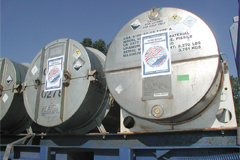 |
In the NewsJanuary 27, 2014From warheads to cheap energyWilliam J. BroadThe New York TimesAs the Cold War ended in the late 1980s and early ’90s, a new fear arose amid the rejoicing and relief: that atomic security might fail in the disintegrating Soviet Union, allowing its huge stockpile of nuclear warheads to fall into unfriendly hands. Many officials and scientists worried. Few knew what to do. That is when MIT physicist, Thomas L. Neff, hit on his improbable idea: turning Russian warheads Into American electricity. |
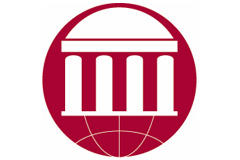 |
In the NewsDecember 13, 2013How should we use our intelligence?Peter DizikesMIT NewsMIT event exposes fault lines among high-ranking former government officials on NSA’s data-gathering programs. |
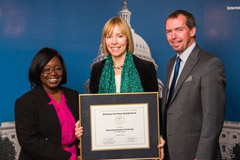 |
News@E40December 4, 2013MISTI receives NAFSA awardMIT International Science and Technology Initiatives (MISTI) was recently presented with the 2013 Senator Paul Simon Spotlight Award during International Education Week in Washington, D.C. The award is granted by NAFSA: Association of International Educators to innovative university programs that make a significant contribution to campus internationalization. "MISTI has spawned entrepreneurs, academics, and venture capitalists who work on the global stage with language skills on top of advanced technological prowess." Read more |
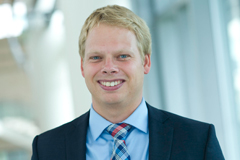 |
précisNovember 1, 2013précis Interview: Richard Nielsen, assistant professor of political science, MITRichard Nielsen, assistant professor of political science at MIT, uses statistical text analysis and fieldwork in Cairo mosques to understand the radicalization of jihadi clerics in the Arab world. He sat down with précis to discuss current projects and courses he's teaching. |
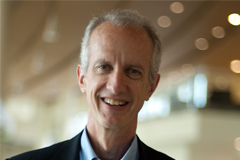 |
précisNovember 1, 2013What kind of capitalism?By Ben Ross SchneiderIn the many intense debates over development in Latin America in recent decades, the question rarely arose, as it had in previous decades, as to what kind of capitalism existed or whether capitalism in Latin America was somehow different, says Ford International Professor of Political Science Ben Ross Schneider. Read an excerpt from his recent book. |
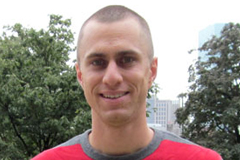 |
précisNovember 1, 2013Insurgent organizational structure and the control of collective violenceBy Alec WorsnopA central moment during the United States surge in Iraq came with the August 2007 stand down of Muqtada al–Sadr's Jaysh al–Mahdi (JAM). As a result, sectarian violence declined drastically as Baghdad became more stable.1 However, few analysts in academia, the government, or the private sphere expected the ceasefire to hold. |

